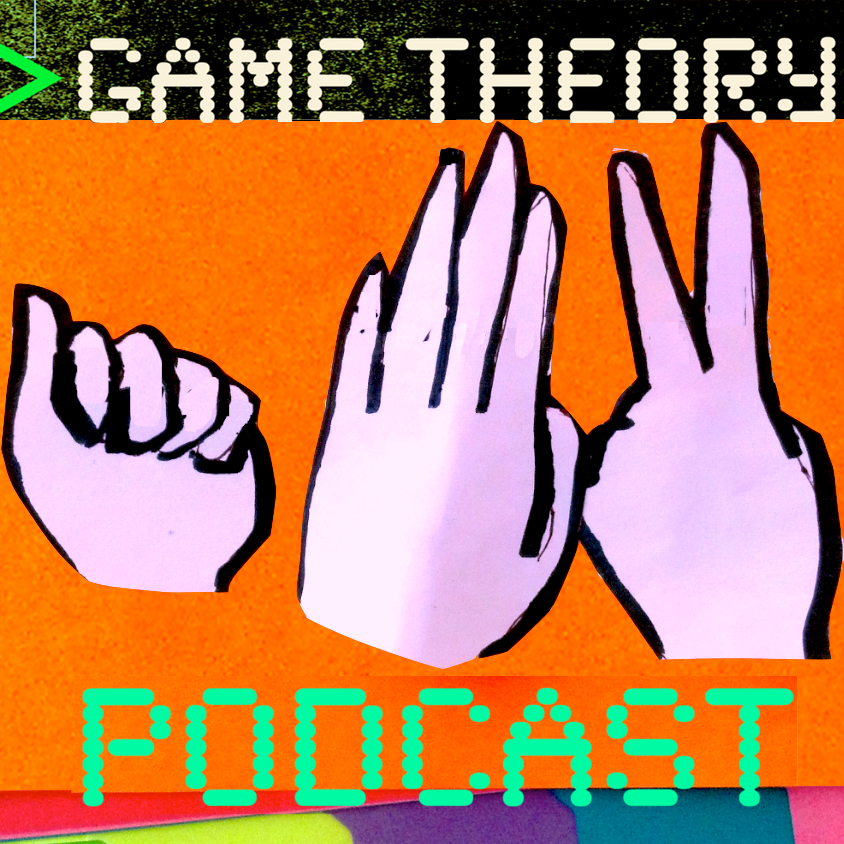
E8: Levels
Recorded on September 29th, 2012 with Brian Fife, James Fingal, and Thomas Westberg.
In the post MMO-RPG world, we tend to make a lot of assumptions about what leveling is and how characters develop as they level, but there’s a lot of diversity in how leveling mechanics have been managed. Jim, Brian and Tom discuss how leveling has evolved over the years.
Many games purport to have multiple leveling paths that result in differentiated gameplay experiences, but often due to balance or complexity/cost reasons this ideal is not realized. Additionally, social pressure in online games tends to homogenize the character “builds”.
Tom loathes auto-scaling zones in open-world games. Jim develops an unhealthy obsession with the TV Tropes website while researching this topic (you have been warned). Everyone agrees that the prospect of losing a level or having XP stolen is terrifying.
Referenced items:
Pac-Man, Defender, Bioshock, Robotron 2084, World of Warcraft, Halo, Diablo, CounterStrike, 1942, Bullet Hell, Final Fantasy, Esper, Dungeons and Dragons, Deus Ex: Human Revolution, Dark Souls, Journey, Amalur:Reckoning, Torchlight, Diablo III, Elder Scrolls, The Saga of Olaf, EvE Online, Guild Wars, Anti-Grinding - TV Tropes, Palladium Books, Rifts, Bushido Blade, Fable, Day Z, A Being of Indescribable Power, Killzone Three, Doom, Half Life Two, World of Commanders.
E7: Fairness
Recorded on September 12th, 2012 with Brian Fife, James Fingal, and Thomas Westberg.
Fairness is slippery and it can be hard to find a definition that most players in a game share. Brian, Tom and Jim all agree that the perception of unfairness does tend to ruin fun in a game.
It can often be hard to differentiate between lack of balance and a gap in player skill. Often what a player might call unfair is just poor game design or balance.
Brian worries about players who apply arbitrary limitations or restrictions to a game in single player mode and get crushed when they try multiplayer. Tom thinks these people are crybaby losers.
For multiplayer games, open communication about exploits is just as important as how fast they are resolved. We talked about what it means for a single player game to be unfair, but didn't come to firm conclusions. If a game's AI cheats, is it unfair?
Referenced items:
My First Cow Clicker, Cow Clicker, Internet [Jerk]wad Theory, World of Tanks, Backgammon, Supreme Commander Two, Halo, Military Madness, Secret World - Tom Chick, World of Warcraft, Dungeons and Dragons Minion, WoT is Rigged - Greedy Goblin, League of Legends, Street Fighter Two, Wimbledon, You Will Die Instantly! - Hypercitical, Playing to Win in Badminton - Sirlin, Sumo Wrestling Collusion - Freakonomics, Blood Doping, Warsong Gulch, Insider Trading, Red Weenie, Rock, Paper, Scissors, Lizard, Spock, Big Bang Theory, Eve Exploit Notice, Hacking Scrabble, Qwordy, Eternal Darkness, Gaslighting, Team Fortress Two, Rocket Jumping, Artemis, Killzone Three, Catherine, Dark Souls, Scroll of Resurrection, Guild Wars Two, EvE Online, Champions Online, Guild Wars, Left 4 Dead, Kill Screen, Gameological Society, Sawbuck Gamer.
E6: Free to Play
Recorded on August 28th, 2012 with Brian Fife, James Fingal, and Thomas Westberg.
The group tries to avoid talking about Farmville-type games unsuccessfully, and eventually pulls the focus around to the new wave of F2P games, converted MMOs like DDO, free to play monetization models, the whales that support them, and the impact these models have on gameplay and experience.
Tom argues that future MMOs must be free to play, and unless Blizzard has another rabbit in their hat WoW is likely to be the last smash-hit subscription-supported MMO. Brian sings the praises of World of Tanks as an almost perfect free to play design.
The group wraps up with some discussion on the major technology platforms, PC, iOS, Android, Xbox, PS3 and how they support F2P.
Referenced items:
Starship Artemis, PAX Prime, Free to Play, Smurfs Village, Zynga’s Quest for Big-Spending Whales, Zynga, Claw Games, Cow Clicker, Popcap Games, Lord of Ultima, Pox Nora, League of Legends, World of Tanks, Tribes: Ascension, Team Fortress Two, Lord of the Rings Online, Dungeons and Dragons Online, Airmech, World of Warcraft, Harry Potter, Star Wars: The Old Republic, Magic: The Gathering, Evony, Street Fighter, Guild Wars, Diablo 3, Downloadable Content, Dungeon Defenders, Assassin’s Creed, Braid, Fez, Counter Strike, EA ‘allplay’ mode, Kingdoms of Amalur: Reckoning, Journey - Collector Edition, Skyrim, Pong.
E5: Grind
Recorded on August 8th, 2012 with Brian Fife, James Fingal, and Thomas Westberg and the crickets in Brian's basement.
Brian, Jim and Tom talk about grind. Grind is eventually defined as time or effort that isn't enjoyable, that must be spent in a game reach an objective, gain an item, or an achievement.
Some may look fondly (in retrospect) on past labors that led to high achievement in a game - but often we look back at time we spend grinding and wish we had done something different.
Grind doesn't always have to be a bad thing. It is sometimes nice to be able to kill time with a game - just like junk television. Persistent/MMO games also allow you to upgrade your character status while you do this.
Referenced items:
Carrot-Stick Forum Article, World of Warcraft, Final Fantasy, Halo Skulls, Braid Stars, Banjo-Kazooie, Super Mario, Beyond Skill - Tobolds, Sonic, Left 4 Dead, Angband, Akimbo Assassin Achievement, World of Tanks, Workification, Runecloth, Winterspring Furbolgs, Chess, Starcraft, Counterstrike, Borderlands, Torchlight, Angry Birds, Comfort Grind, Jetpack Joyride, Call of Duty, Captured Firefly, Captuar - Final Fantasy 3, Dawn of War, God of War, Turtling, Diablo 3, Civilization, Grand Theft Auto 3, Pigeon, BFG, Morrowind, Umbra, Half Life 2.